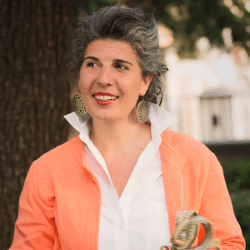Introduction
Mauricio is revolutionizing the quality of life for individuals with disabilities, helping them, their families, and their societies recognize their autonomy and achieve their potential through a 360º neuropsychological evaluation combined with an innovative life and career integration process. Using these tools, Mauricio has created an expansive network where his ideas are changing the way psychologists, businesses, and families interact with and integrate people with intellectual disabilities by focusing on their abilities rather than on their limits.
The New Idea
Seeing the marginalization of people affected by intellectual disability, Mauricio Canseco decided to change this. Today, he is transforming the lives of Persons with an Intellectual Disability (PWID) and their families by pioneering a comprehensive accurate, 360-degree neuropsychological evaluation and follow-up Life and Career Plan (LCP) that includes personalized and guided diagnosis, education, personal development and employment opportunities. Mauricio´s work turns conventional wisdom upside down, by changing the stigma families, businesses and organizations, and the community hold against PWID by focusing on the dignity and competitiveness of PWID rather than on their limits.
Dedicated to true systemic change, Mauricio goes even further and changes the mindset of psychologists, schools and businesses through his programs and the linkages he facilitates. Mauricio has built a strong, growing network for PWID to integrate them successfully into education, the workforce, and leadership positions. With the comprehensive, digestible reports (360 evaluation and Life and Career Plans), teachers and organizations participate actively in developing life and career goals with PWID. Mauricio’s processes, at a systemic level, change society’s attitude toward PWID, making society a more inclusive place for PWID.
Mauricio is fomenting leadership among PWID by giving them positions as cofounders and representatives of his movement Hecho Con Capacidad (Made with Ability), appreciating each of their abilities and not disabilities. Those leaders are informing the general population about PWID and their unique talents, thoughts, and experiences through conferences. Ambassadors are speakers at conferences that not only serve to inform society, but also are a fountain of inspiration for PWID and families to aspire to long-term goals of personal and professional development.
Mauricio’s system-changing work doesn’t end there. Mauricio’s constant generation of new tools will ensure the success of an integral and renewed view of intellectual disability (ID) by society and will generate a steady revenue. By flawlessly orchestrating the LCP methodology, training, and support to key actors, families, and communities, Mauricio exponentially expands his vision of abilities and integration.
The Problem
According to the WHO, between 1% and 3% of people in the world have an ID. In Mexico, there are approximately 3 million PWID and about 6 million family members. Strong stigmas have marginalized PWID and their families, leaving them without an adequate support system.
Hospitals lack diagnosis and follow-up, schools fail to tailor to PWID, and businesses constantly overlook a talented pool of candidates. Marginalized, PWID and their families are left vulnerable before society and, therefore, see little opportunity for personal and professional development. Instead, the families focus their energy on protecting PWID and providing compassionate care instead of investing in real opportunities for their children with ID.
In Mexico, psychiatric hospitals regularly under-report ID, failing to recognize it as a primary diagnosis. Moreover, hospitals regularly fail to identify ID at all in children and lack the ability to provide follow-up for adults with ID. A lack of adequate diagnosis and follow-up services leaves PWID and their families with a bleak outlook on personal and professional development. Even when psychologists diagnose ID, it is categorized as a condition with a stark outlook.
With high rates of underreporting and misclassification, schools are not equipped to work with PWID. Primarily, teachers receive little to no training in ID education. When teachers are trained, the programs have a limited scope, reach, and are often “protection” focused. Because these programs have few resources, parents believe that sending their children with ID to regular schools and universities is the best course of action. PWID graduate these high schools and universities with diplomas and certificates in hand, but they leave without the necessary skills they need to succeed independently or in the workplace.
Without adequate psychiatric care and schooling, employment for PWID is nearly impossible. Mexican law calls for inclusion at all levels of society, but this rarely leads to professional development. In accordance with the law, organizations and businesses create job posts for PWID. However, knowing little about PWID and having no mechanisms in place for how to work with PWID, they either do not contract PWID out of fear or create idle job posts. These jobs are created out of pity, hardly capitalizing on PWID’s abilities, instead, they complete menial tasks that offer no professional or personal growth for the PWID.
More than ever, ID needs to be recognized as a condition of life, not a health problem that prevents the development of PWID. User-friendly reports that highlight PWID’s skillsets create a positive response and an environment for lasting change.
The Strategy
Seeing the need for a holistic, guided approach for PWID and their families through society’s obstacles, Mauricio created the integrative center, Mindpedia. Through Mindpedia, Mauricio standardizes neuropsychological testing, provides wholesome psychiatric services, education and physical education services through several branches dedicated to the needs of PWID, their families, organizations, and the community: Research and Development Branch, Psychological Service Branch, Psycho-Pedagogical Center for Education, the Physical Education Branch, and Consulting Branch.
Most innovatively, Mindpedia creates a Life and Career Plan based off of a 360 neuropsychological evaluation. This Life and Career Plan (LCP) is a digestible report that explains the abilities, objectives, and support plan. Further, the LCP is used to ensure PWID and their families have long-term goals for personal and professional development and to help teachers and organizations understand the goals and help them happen. The LCP has several phases. First, Mindpedia conducts an interview with the family and the individual to understand their attitude toward the condition of disability. After the interview, Mindpedia completes a neuropsychological evaluation that focuses on 4 dimensions: Quality of Family Life, Work Skills, Social Skills, and Physical Functionality. After reviewing the interview and the neuropsychological evaluation, Mindpedia offers the family and PWID a holistic training process to help them overcome the stigma of ID and to learn to recognize the PWID for their capacity and abilities rather than for their medical diagnosis to enable their profound development. Finally, Mindpedia identifies the types of support and therapies the individual will need to succeed in obtaining their life goals, which includes providing personalized education, psychological support, physical education, fomenting leadership, and seeking employment. It is important to mention that the inclusion of PWID in the labour market might be an option, but is not the final goal as Mindpedia focuses on the long-term development of the PWID and their family. At times, the neuropsychological evaluation finds that the PWID is not ready to seek employment. Depending on the results, Mindpedia’s Psychological Service Branch either provides the support (Development of Everyday Skills, Development Fine and Gross Motor Skills, Interview Training, Use of Technology) and the therapy needed (Occupational Therapy, Behavioral Therapy, Group Therapy) or functions as a catalyzer and ushers them to reputable therapists or partners in their network who address their needs and guarantee their holistic development in conjunction with the Life and Career Plan.
The Life and Career Plan is integrated throughout all of Mindpedia’s facets. The 360 neuropsychological evaluation is used to construct the Life and Career Plan and serves to standardize neuropsychological testing for children and adolescents in Mexico by establishing normative parameters for ten tests. Mindpedia presents the LCP and the 360 evaluation to potential employers and family members to train them how to best work with PWID and recognize their abilities and challenges. Mindpedia does regular follow ups with employers to ensure that the integration process is running smoothly.
To target the educational needs of PWID, Mauricio partnered with Romelia, a teacher who specializes in ID with over 30 years of experience, to develop Mindpedia’s Education and Physical Education branch which offers classes that teach social, cognitive, and dimensional skills. The students are met with patience, taking each step at their own pace alongside a teacher who is dedicated to helping the PWID and their family reach their Life and Career Goals. Mindpedia is planning to offer programs that can yield social and work skills certificates. Here, students do not graduate with just a certificate, they graduate with a true grasp on social and work skills.
Committed to addressing every aspect of ID, Mauricio is constantly adding new tools to his strategy to achieve the best results for PWID and to best change the stigma surrounding ID. Specifically, Mindpedia will launch SemperFit, an integral and inclusive gym, in partnership with a larger mall operator. SemperFit is geared specifically for the PWID’s needs, offering four hours of specialized training that stimulates the physical, emotional, cognitive and social dimensions of each individual.
Mindpedia recognizes that changing the lives of PWID and their families also requires working with society to eliminate their stigmas against PWID. For this reason, Mindpedia works with organizations and companies to ensure they create inclusive job posts, teams, and organizations with growth potential for individuals with disabilities instead of creating “inclusive” stagnant jobs. Specifically, Mindpedia has three programs. The first program Creating an Inclusive Job Post works with organizations to create inclusive job posts with growth potential. Another program, Curriculum Based on Abilities, works with students or young entrepreneurs to help them rid their stigmas of PWID. The program Re-engineering of Teams is specialized for organizations seeking to improve their results by focusing on abilities of the employees while increasing inclusivity. Finally, the program Consultation of Organizational Development is designed for organizations seeking to increase their innovation while also emphasizing inclusivity in their operations.
Mauricio also creates leaders. Currently, ten graduates are ambassadors, giving conferences and workshops in public. These events allow the PWID to demonstrate their leadership, but also to tell community members, partners, etc. their stories. These conferences help change the perspective of PWID from vulnerable to capable, powerful, and motivating.
Today, Mindpedia has worked with 30 individuals with intellectual disabilities and 70 family members in the Life and Career Plan process. To maximize quality and growth in their Psycho-Pedagogical Center for Education, Mindpedia partners closely with an Intellectual Disabilities Education institution that has benefited more than 700 PWID. Additionally, Mindpedia has consulted 8 companies to create more inclusive working places, they have worked with 9 persons with disability that are the leaders and co-founders of the movement Hecho Con Capacidad (Made with Ability) and approximately 2400 people have participated in their conferences.
Mauricio’s impact is echoed through the stories of Mindpedia participants. Ernesto, a young man with ID, hadn’t spoken for over 20 years. Ernesto’s father had always overly protected his son, anticipating his every need. When Ernesto never learned to speak, his father believed it was part of his condition. Working with Mindpedia´s network of psychologists, Ernesto suddenly started talking. Jorge, a young man in his early 20s with ID caused by a cerebral tumor, came to Mindpedia through Mauricio’s foundation Hecho Con Capacidad (Made with Ability), a start-up completely run by PWID. Jorge sought to foment his autonomy. The evaluation and consequent LCP identified his skills: an expansive vocabulary, ability to express needs and thoughts, and sociability. The tools also identified Jorge as a respectful, patient, calm, and interpersonal individual. His core abilities meant he worked well in teams, had an orientation toward service, and awareness of protocol. Jorge’s preferences were to work in an interesting, low-pressure environment, but made rash decisions and acted impulsively. The tools concluded that he would need help in organization, a focus on clear instructions, and motivation to work agily. Based on these tools, Jorge began attending therapy and classes to achieve autonomy where he learned to be conscientious of his actions, manage his finances, understand his rights, and further develop motor skills. Today, Jorge has an increased attention span toward activities outside his specific interest, more motivation, and greater confidence in his decisions. As a result, he is able to take on more responsibility. Adrian, another participant, now works as the manager of inventory. People in the workplace were first shocked to see a PWID as the manager, but through Mindpedia´s close and regular follow-up work with the company the employees accepted a PWID as a leader.
Mindpedia boasts a strong network and strategic partners such as the Center of Education for Teaching Psychology, Autismo ABP, Rotary Club, Autism Global Panel, Unidos, Best Buddies A.C., University of Monterrey, University Tecnológico of Monterrey, Foro Monterrey, Gestalt Center (a family therapy center), Harvard University, Deusto University, and the Council of Social Development of the state of Nuevo Leon.
Mauricio’s sustainable model has a budget of MXN $600,000, with 67% of income from products and services, such as the Life and Career Plan and consulting services and 33% from personal investments. In order to reach families, schools, and businesses of all income levels, Mindpedia offers a multi-tier pricing plan. In general, Mindpedia will work to strengthen their resources and programs as well as expand their network.
This year, Mauricio plans to further consolidate the LCP as an even stronger resource for inclusion in the ecosystem and expand their services to a Physical Education Center (SemperFit), which they are planning to bring to commercial centers across the country. During the next two years, they will follow up with the 30 pilot youth to track progress and continue refining the pilot. Mindpedia is also creating operational manuals for the LCP to facilitate expansion and use by key actors (parents, psychologists, schools, businesses). These key actors will be left with training and the methodology needed to create an inclusive, productive environment for PWID, hence, facilitate integration for PWID across different scenarios and maximize Mindpedia´s impact.
Within the next 5 years, they hope to official launch the platform CCAPACIDAD.ORG (CCAPABILITY.ORG), a digital resource for PWID. The website will allow PWID and their families access to tools and resources as well as track youth’s growth and Mindpedia’s partners. Mindpedia, through a private funding, hopes to open a Center for Specific Potentials to certify specific competencies in PWID. In ten years, Mauricio aspires to change the ecosystem of Special Education to Specialized Education and to see a systemic change, with PWID recognized as a social group with high potential in all settings (labor, commercial, educational, etc.).
The Person
Mauricio grew up around leaders in the health community, understanding the need for accessible care for vulnerable groups. Mauricio was greatly influenced by his grandfather, Dr. Carlos Canseco Gonzalez, who was named the Health Hero of the Americas for starting and promoting Rotary work toward finding the cure for Polio. For this reason, Mauricio sought out service projects throughout his life. Ultimately, his passion for accessibility for all people has compelled him to promote dignity for individuals with disabilities for over 15 years.
Having had the opportunity to attend a Marist university, the University of Monterrey, he was able to do service projects aiding a variety of vulnerable groups. In 2011, Canseco founded an organization called One to One (Uno a Uno), a bottling company that hires solely PWID. There, he learned about PWID and their abilities. In 2011, he also founded Made with Ability (Hecho con Capacidad), an organization dedicated to promoting inclusivity for individuals with disabilities. While working as head of One to One and Made with Ability, he realized that he couldn’t keep opening organizations to work with PWID; instead, he had to find a strategy so that more businesses worked with PWID. Thus, he set out to find a way to truly cause systemic change - Mindpedia.
Since then, he has dedicated his life to working with this population. Currently, in addition to Mindpedia, he also co-founded an inclusive gym, SemperFit, and a promoter of inclusivity for individuals with Autism, Let’s Shine Blue for Autism (Iluminemos de Azul por el Autismo).
Mauricio was particularly touched by a 22-year- old man named Mauricio Cadena diagnosed with Mosiac Down Syndrome who said to him, “Chief, what do I have to do to be like you?” He answered the obvious, “…Well, kiddo, you have to study and work very hard.” Soon after working with this population, Mauricio realized that Cadena wouldn’t be able to follow these steps because the system wouldn’t work with his disability. Today, Cadena is a Business Administration student. Recently, he told Mauricio, “I’m almost like you, Chief.” Mauricio envisions and works toward a future in which individuals with disabilities can be “like him [Mauricio]” without facing enormous social obstacles that fail to realize their potential. He is committed to providing personal and professional development to clients by making otherwise inaccessible neuropsychological information accessible and applicable.
Mauricio’s continuing and wholesome dedication to changing stigmas against ID is further evidenced by his PhD thesis, Competitivity, Dignity, and Neurological Accessibility for PWID at Centro Gestalt Fritz Perls. He believes his thesis will be the groundwork for continual improvements to both Mindpedia’s processes and public policy.




